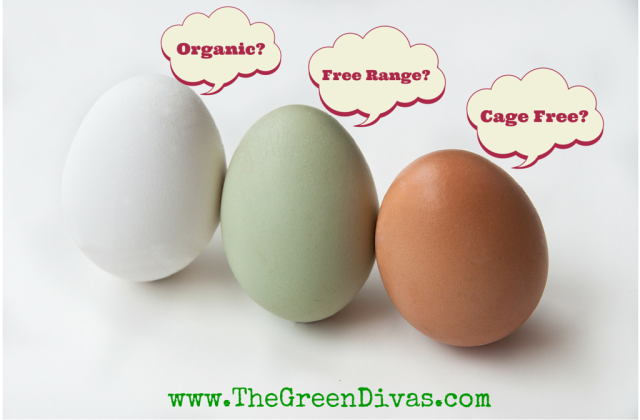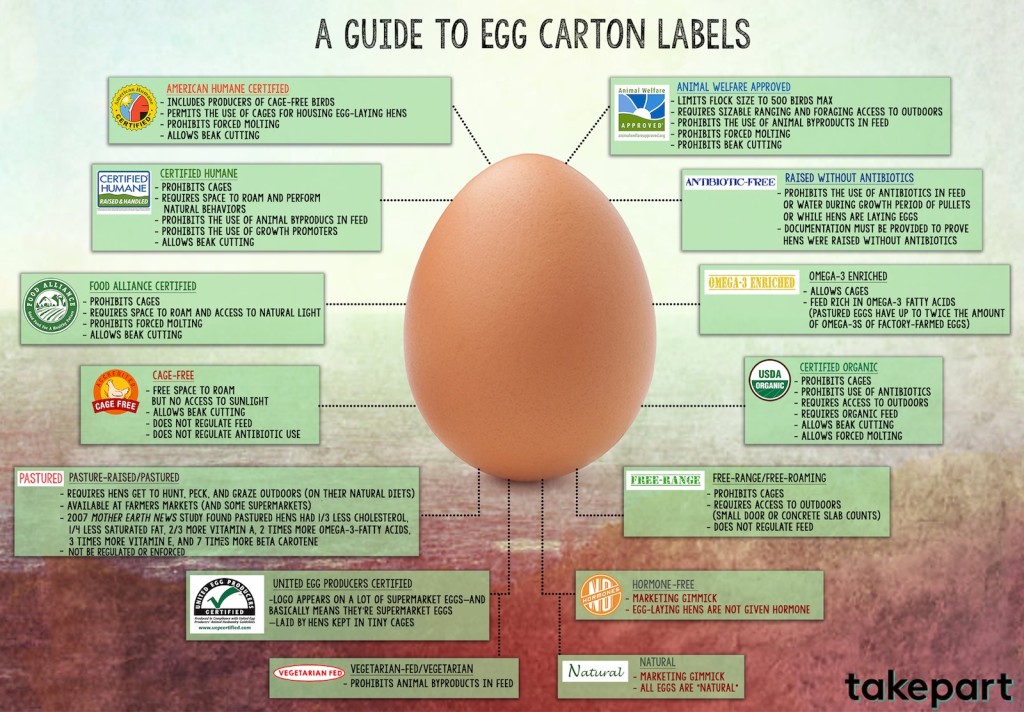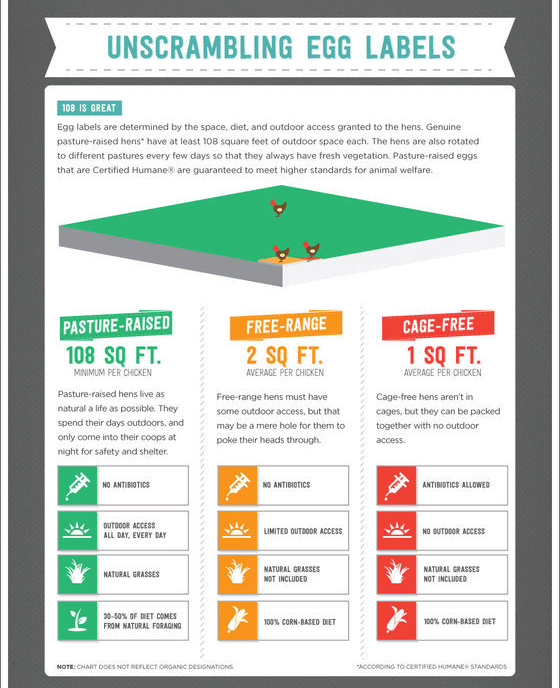
Written by Annika Ihnat.
You might feel like you need translator in the egg aisle…and you’re not alone!
You’re strolling along in the refrigerated aisle of your local grocery store when, suddenly, you’re greeted by pastoral images of happy hens clucking amid green pastures. But that’s about all the various egg carton labels in the aisle have in common. One may be labeled “cage-free,” while another is labeled “free-range.” Still others are touted as “vegetarian-fed,” “hormone-free,” or “organic.”
It’s easy to get confused. The following video from PBS and The Lexicon of Sustainability explains the differences between the myriad classifications on egg carton labels.
Watch The Story Of An Egg:
So what do the terms on egg carton labels mean?
Beyond “cage-free,” “free-range,” and “pastured,” there are many more marketing terms—as well as legitimate certifications—that egg producers slap on their egg carton labels to help sell their eggs. TakePart’s Understanding an Egg infographic shows exactly what the most common egg carton labels mean, including which practices are allowed and which are prohibited. It’s interesting to note that the label “hormone-free” is essentially a meaningless marketing gimmick because no egg-laying hens are ever given hormones.

The egg carton labels you see at your typical grocery store can give you a good sense of the diet, space, and outdoor access given to the hens laying each brand of eggs. On all three counts, hens raised on pasture produce the most healthful eggs because they have access to the grass, bugs, and worms that are most healthful for them. To get the highest quality eggs, while supporting family farmers who provide a happy, healthy life for their animals, look for pasture-raised eggs at your local farmers market.

Bonus:
Listen to this Green Divas Foodie-Philes podcast to learn even more about organic eggs…
[dynamic-sidebar id=’Custom Widget 2′]
~Asst. Ed. Green Diva Christine | Image via Shutterstock
Infographic #1 via takepart.org | Infographic #2 via foodmanufacturing.com